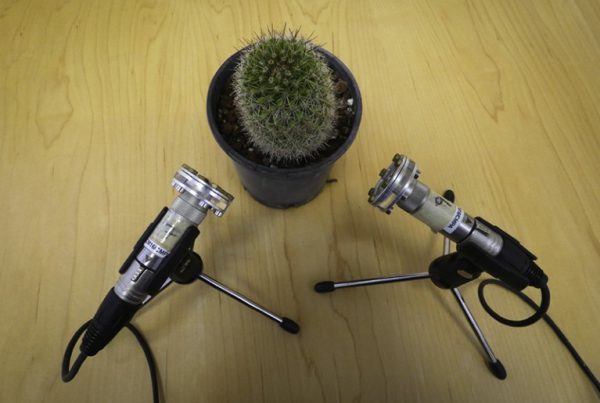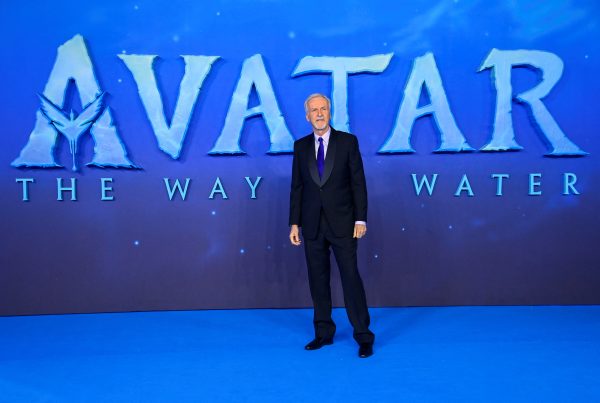Coronavirus has had a massive impact on the world’s mental health. Forgetting the physical harm Covid-19 can cause, the fear of catching the virus and the isolation of lockdown has taken an inevitable toll on our collective mental wellbeing. And while the most useful technology in combating these effects would be a vaccination, augmented reality and virtual reality are increasingly coming to the fore as tools for easing our anxiety and stress.
A KFF survey from April revealed that as many as 45% of Americans report the negative impact the coronavirus has had on their mental health. Given that the percentage was only 32% in March, this increase shows the cumulative psychological damage Covid-19 can cause. Likewise, data from the Census Bureau indicates that, as of the week ending June 23, around 36% of American adults are suffering from symptoms of anxiety or depressive disorder.
This is a big problem. A vaccine isn’t likely to be readily available until next year at the earliest (if at all), so learning how to cope with the coronavirus and with a degree of self-isolation is going to become progressively important as time passes. Fortunately, a growing number of augmented reality and virtual reality solutions promise to alleviate many of the stresses and anxieties caused by the coronavirus.
At one end of the scale, there are a number of more informal VR and AR games and apps that help people reduce anxiety. For example, DEEP VR is a meditative VR game developed in partnership with Radboud University and that uses biofeedback mechanics as its control system. Due for release later this year, the user explores a beautiful underwater world by breathing deeply and slowly, with their breathing measured by a belt that wraps around their diaphragm. Such breathing has been shown by research to relax the body’s nervous system, so it’s possible that the game could help people lower their stress levels.

An example of the virtual worlds witnessed as part of DEEP VR.
DEEP VR
Likewise, SoundSelf is a VR-supported meditation experience created by Andromeda Entertainment, which is a developer focused on designing games that support and foster mindfulness. Launched in April, SoundSelf aims to send the player into a meditative trance, updating and altering the psychedelic virtual worlds it creates as the player inhales and exhales in long tones.
Taking a slightly different approach, Healium is a Missouri-based company that uses VR and AR in combination with neurofeedback to control stress and anxiety. Its app monitors the user’s brainwaves and heart rate via an EEG headband, using this data to construct a VR or AR-based environment. The idea is that, as the user sees how their mental state is altering the virtual world around them, they gradually learn how to control it.
What’s significant about the use of VR and AR for anxiety relief is that both offer a greater sense of reality and immersion than, say, conventional meditation or mindfulness practice. It’s largely for this reason that figures working within the AR/VR industry are increasingly advocating for the greater adoption of AR and VR within not only the home, but also in clinical settings
Miri Polachek is one of these figures. The CEO of wellbeing-focused investment company and incubator Joy Ventures, she tells me that AR and VR both represent a step-change in how individuals can improve their mental health.
“AR and VR offer a more immersive experience through their multi-sensory approaches,” she says. “For example, AR/VR technologies that lead to the feeling of ‘embodiment’ – when a user feels that what they’re seeing is what they’re truly experiencing – can be used for exposure or empathy therapy, which have been shown through many studies to have excellent long term results for coping with trauma and anxiety disorders.”
As Polacheck says, a number of studies have indicated the effectiveness of VR in treating mental health disorders. It therefore doesn’t come as much of a surprise that, aside from more informal games and apps, VR and AR are also increasingly making their way into health systems throughout the world.
In Spain, for instance, the Barcelona-based Psious has developed an all-in-one virtual reality platform for therapists and mental health professionals to treat anxiety disorders through exposure therapy. It provides over 70 virtual environments covering a variety of disorders, from social anxiety to a fear of heights and eating disorders. In the context of the coronavirus, it also offers a number of environments related to mindfulness, relaxation and obsessive compulsive disorder. It currently counts around 2,000 clients, including the NHS, the Hospital de la Santa Creu I Sant Pau, the Cincinnati Children’s Hospital, and numerous universities.
Importantly, AR and VR-based therapies aren’t simply a stopgap during the coronavirus pandemic and its associated lockdowns. Increasingly, they’re becoming beneficial technologies in their own right, and will become even more widely used even after life returns to normal.
“AR and VR-based therapies and treatments offer a lot more than just being the ‘next best alternative’ to in-person therapy,” explains Miri Polacheck. “They can serve as standalone therapeutic tools or can supplement in-person treatment, enabling a curated and controlled virtual experience that extends individual care outside of the clinic.”
AR and VR also offer something quite new in the field of home and clinical therapy: the ability to provide highly personalised therapeutic experiences. “These experiences can be tailored, even in real time, according to an individual’s needs, then tested and modified accordingly to generate effective long-term results,” Polachek adds.
No less distinctive is the fact that AR/VR-based therapeutic experiences are also inherently scalable. So while in-person therapy with a clinician or psychiatrist will be limited to how many people a health service can accommodate each day, week and year, VR and AR-based experiences can accommodate an indefinite number of people, regardless of geographic location or time of day.
Indeed, various companies are already taking advantage of the scalability offered by VR. In the United States, the Massachusetts-based XR Health is a virtual reality tele-health company with over 500 certified healthcare professionals throughout the US. It currently offers treatments for physical therapy, stress relief, cognitive therapy, pain management, and more.

XR Health’s headset and controllers.
XR HEALTH
Relevantly, it also offers a “respiratory recovery” service, which has been tailored towards coronavirus survivors. Regardless of which particular treatment users choose, signing up with XR Health also grants them video meetings with healthcare clinicians. These professionals load the user’s XR Health headsets with relevant virtual treatments and experiences, which they then monitor to ensure that the treatment is working for the user.
As the example of XR Health indicates, the use of virtual reality in the context of anxiety and mental health isn’t new. However, the coronavirus pandemic has apparently accelerated the spread and use of VR and AR for the alleviation and treatment of mental health issues.
“The coronavirus pandemic has already caused a powerful ripple effect, raising consciousness around technologies that can help address many of the healthcare system’s current limitations,” says Miri Polachek. “This has been true of tele-health—not only on the individual level but on the regulatory level, in which legislators are making virtual care more accessible–and we believe the same will be true for AR and VR consumer products for emotional wellbeing.”
With social distancing likely to last until 2022, mental health will remain an acute problem in many countries, with distancing also making it harder to access conventional treatment. As a result, Polacheck believes there “is no doubt that the pandemic with all of its fallout will serve as an accelerator for disruption in consumer technology for emotional wellbeing.”
Of course, it may not be ideal to rely on digital technology for treatment rather than actual doctors and psychiatrists, particularly when privacy concerns are thrown into the mix. But given that many hospitals and clinicians would be using it for mental health treatment anyway, it seems virtual reality is a technology whose time has come.
Source: Meet The Companies Using VR To Treat Coronavirus-Related Stress And Anxiety













